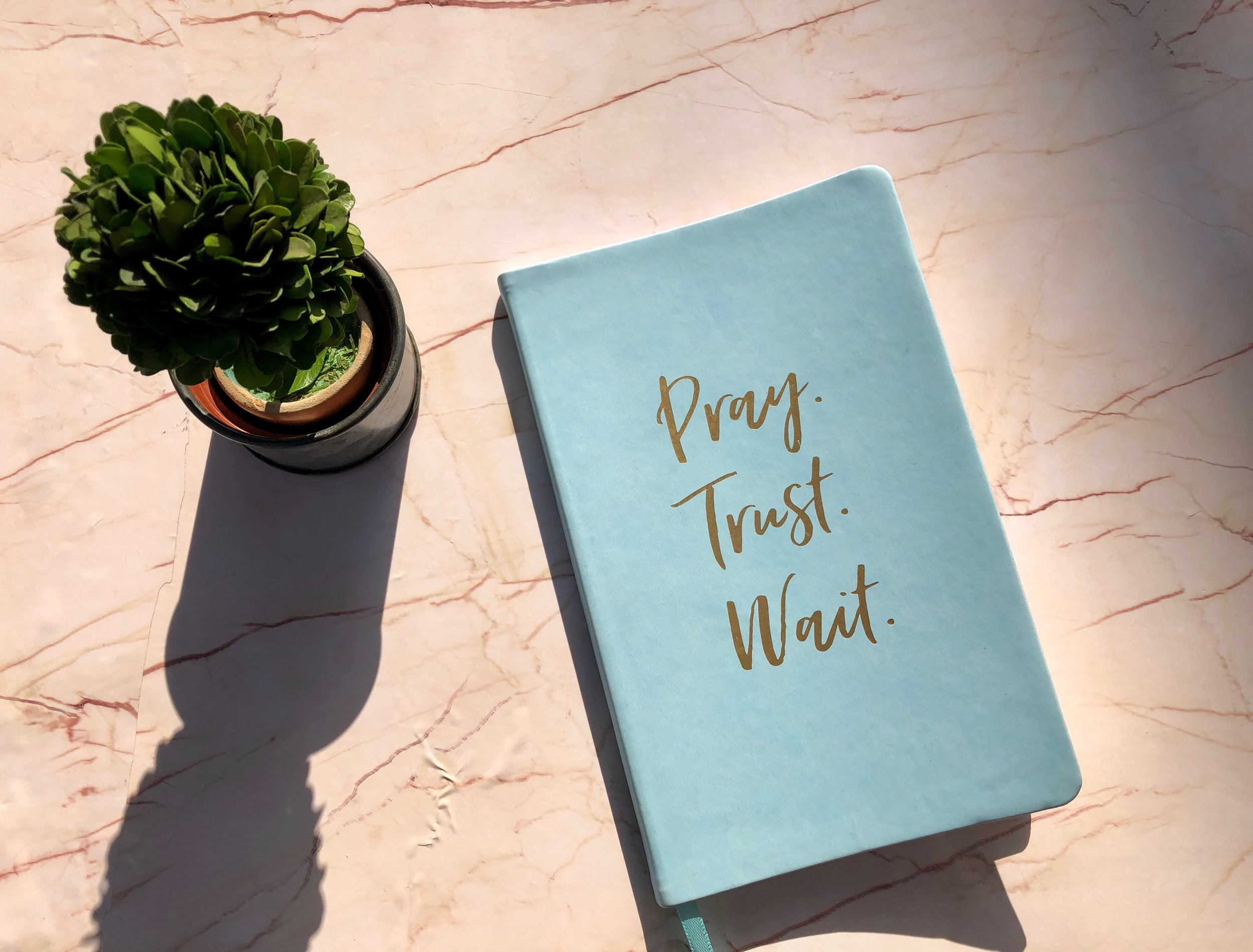Making the Most of Your Breakup

WARNING: Long blog post ahead.
Hi guys! So this blog post is a bit personal, but I strongly felt that I should write it. I shared on the blog that I recently got out of a relationship. While it’s not my first rodeo, I feel like I have truly learned some invaluable lessons for to how to best process, move on and ultimately grow from the experience.
If there is anything in life that is (nearly) unavoidable, it’s breakups. Okay—except for those high school sweethearts that somehow made it work and lived happily ever after. But those couples are rare and most of us go through multiple relationships before we find someone who is truly right for us. Logically speaking, every relationship we enter will either end in a breakup or go forward into marriage. And if we ever want to find the right person, we must embrace the reality that each relationship has the risk to end in loss.
For those of us who have endured difficult breakups in the past, it can be easy to live in the fear of repeating the experience. Whether we wanted the relationship to end or not, the tangible loss affects you. If we don’t learn how to navigate the process of moving forward in a healthy way, we can miss out on all of the growth and lessons available for us to learn or even become paralyzed from taking risks in the future.
In this post I am going to talk through five different aspects of working through a breakup that can lead to healing, growth and fulfillment. I believe that these principles apply whether the breakup was your decision, your partner’s, or a mutual agreement.
1.) Remember the Positives
Sometimes after we end a relationship, we can be tempted to demonize that person as a coping mechanism to help us move forward. After all, it’s a lot easier to move on and forget someone who you dislike and resent then it is with someone you still admire.
While I understand the temptation to focus on that person’s negative qualities as a way to help you move on, I don’t believe that is actually the wisest path. I grant that there may be certain situations where a partner was extremely toxic and any redeeming qualities may be overshadowed by that toxicity. I can’t imagine how painful that must be, and don’t pretend to be know how to deal with that. But I believe in most cases we wouldn’t have dated someone if they didn’t have redeeming qualities.
My belief is that we shouldn’t forget the positive things about a former partner or relationship that really worked well for us. If that person was kind, generous, funny, helpful or fill-in-the-blank, we should remember that! Not just to give that person the respect they deserve as a human being who was in our life, but also to remember positive qualities we really want in a future mate. After all, just because someone wasn’t a good match for us doesn’t mean they aren’t a good person. I genuinely believe there are a lot of amazing people out there, and we should remember the valuable things we experienced from our past relationships to keep our standards healthy for the future.
2.) Reflect Realistically
While demonizing an ex-partner is one pitfall, the other extreme tendency in processing a breakup is to over-idealize that person or relationship. In the past, this has been an area where I’ve struggled a bit. After the dust of emotional turmoil settles (however long that takes) we can have a tendency to forget all of the negatives and reflect on that relationship or person with rose-colored glasses. Maybe we hear a song that reminds us of them or see some old pictures or gifts from them and are suddenly transported back to nostalgic memories. Because enough time has passed, we look back and wonder why we broke up or if we will ever find someone like them again.
The danger of this mindset is that it completely ignores the reality of what that situation was at the time. Sure, there might have been fond memories with that person, but ultimately there were reasons why it didn’t work out longterm. If you were the one to end it, it was because there were problems that overshadowed whatever positives existed. If they ended it, they clearly decided, for whatever reason, that you were not the right fit for them. Either way—the relationship was not meant to be for solid reasons. Somehow time and nostalgia has a way of making us forget all of the reasons why the relationship didn’t work and instead taunt us with an illusion of something that never quite was.
One way I have learned from the past to deal with this pitfall is to journal regularly about my feelings and experiences. The beauty of journaling is that we can look back on previous entries and immediately remember how we truly felt in that moment about the situation. We can remember the frustration, hurt, disappointment or whatever was really going on at the time and not be fooled by the selective, rose-colored memories. I recommend saving that nostalgia for family photos and high school yearbooks—but when it comes to your past relationships try to avoid romanticizing the past.
3.) Discern Areas for Personal Growth
One of the best parts about any life transition, especially after an ended relationship, is the opportunity to reflect on areas of personal weakness and set yourself up to do better in the future. In order to do that, however, we must be willing to camp out for a bit after the breakup and have an honest conversation with ourselves about what really happened and what roles we individually played in the process.
I understand the temptation to want to blame the other person, the circumstances or fill-in-the-blank, but every relationship consists of two people responsible for making it work. Be honest with yourself about where you didn’t do your absolute best by that person. Acknowledge areas that maybe you put unfair or unrealistic expectations on that partner to meet a need they couldn’t fill. Admit where you let yourself settle into unhealthy patterns or mindsets that contributed to issues. If you are a person of faith, you can bring those confessions before God and ask him to help you take ownership, repent where you need to and trust Him to help you move on and do better in the future.
4.) Figure Out What You Need In the Future
I’ve heard wise people say that dating is the time to figure out whether that person would make a suitable lifelong partner. If the purpose is to get to know them and figure out if you are a wise match, then sometimes ending a relationship is actually the right way to go. The only way you truly “fail” that objective is if you don’t figure out the reasons why that particular person wasn’t right for you.
There is a famous anonymous quote out there that says, “every failed relationship is a step closer to finding the right one.” I love this quote because it affirms that broken relationships aren’t wastes of time. And personally, I would so much rather experience the temporary pain and discomfort of a breakup over the longterm pain and discontentment of a lifelong commitment to someone who isn’t right for me.
That time after a breakup and before you jump back into the dating scene is an excellent time to figure out what exactly didn’t work in that relationship and what you really want in a future mate. As a writer, I advise journaling as an effective way to process this information, but talking with friends or mentors/counselors is also helpful.
Maybe personality and lifestyle differences caused unnecessary friction. Maybe you were incompatible with conflict or communication styles and couldn’t seem to work through it. Maybe your values or life visions were very different and there wasn’t a way to merge those discrepancies. Maybe you weren’t challenged or inspired enough by that person and grew complacent and static. Maybe they brought you down when you needed to be lifted up or didn’t influence you in positive ways. Whatever reasons they may be, keeping track of them is absolutely critical to learning for the future what kind of person you are looking for. And that should be an exciting prospect!
5.) Love Your Life
Last but not least, make the most of your breakup by sincerely loving your life! The way I see it, loving your life means having a vision, passion and purpose. That time fresh after your breakup is an optimal season to reenvision the life that you want and reassess path you need to take. If you feel strongly about a certain dream or lifestyle, you will be more careful to select someone who supports that vision rather than someone whose life trajectory doesn’t align with yours.
Loving your life also means spending time cultivating your passions. For me, that looks like reading more books than I know what to do with, becoming a better artist and writer, and stretching myself to learn new things and take new risks. It means pouring my energy into building community, fostering relationships with friends and family and continuing to focus on my health and healing.
And finally, loving my life means cultivating a life of purpose. Now more than ever, I have a desire to pour my life into something that brings meaning beyond myself. As a Christian, that means looking for ways to serve others and continuing to grow in my faith and character. It means praying for God to use me where I am and give me a heart that thirsts after his righteousness and cares for the needs of people around me. That time after a breakup provides such a great opportunity to reevaluate your priorities and seek after a purpose-driven life.
What About You?
If you managed to read through my novel of a blog post to get to this section, then congratulations! You clearly have a solid attention span and are therefore worthy to give me your own advice (heehee). Do you agree with the points I’ve made? Disagree? What would you add? I’d love to hear!

